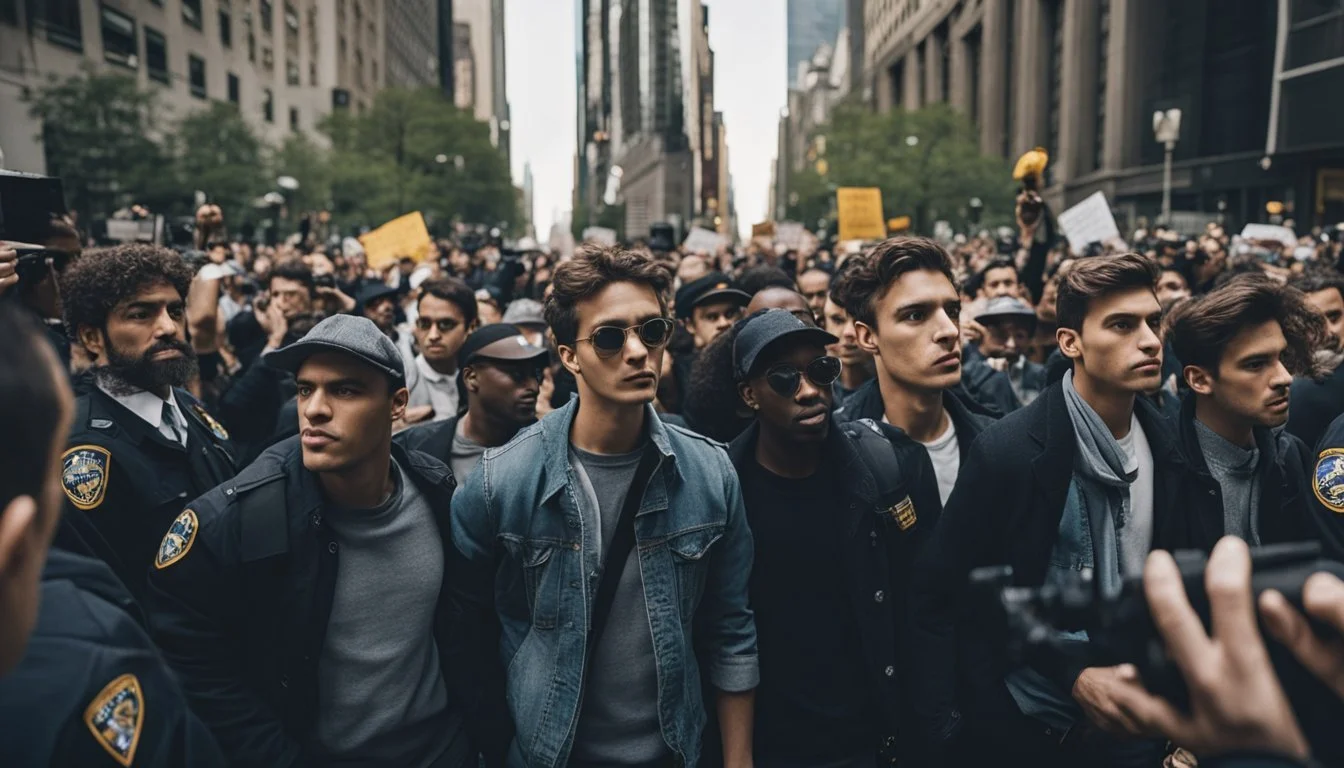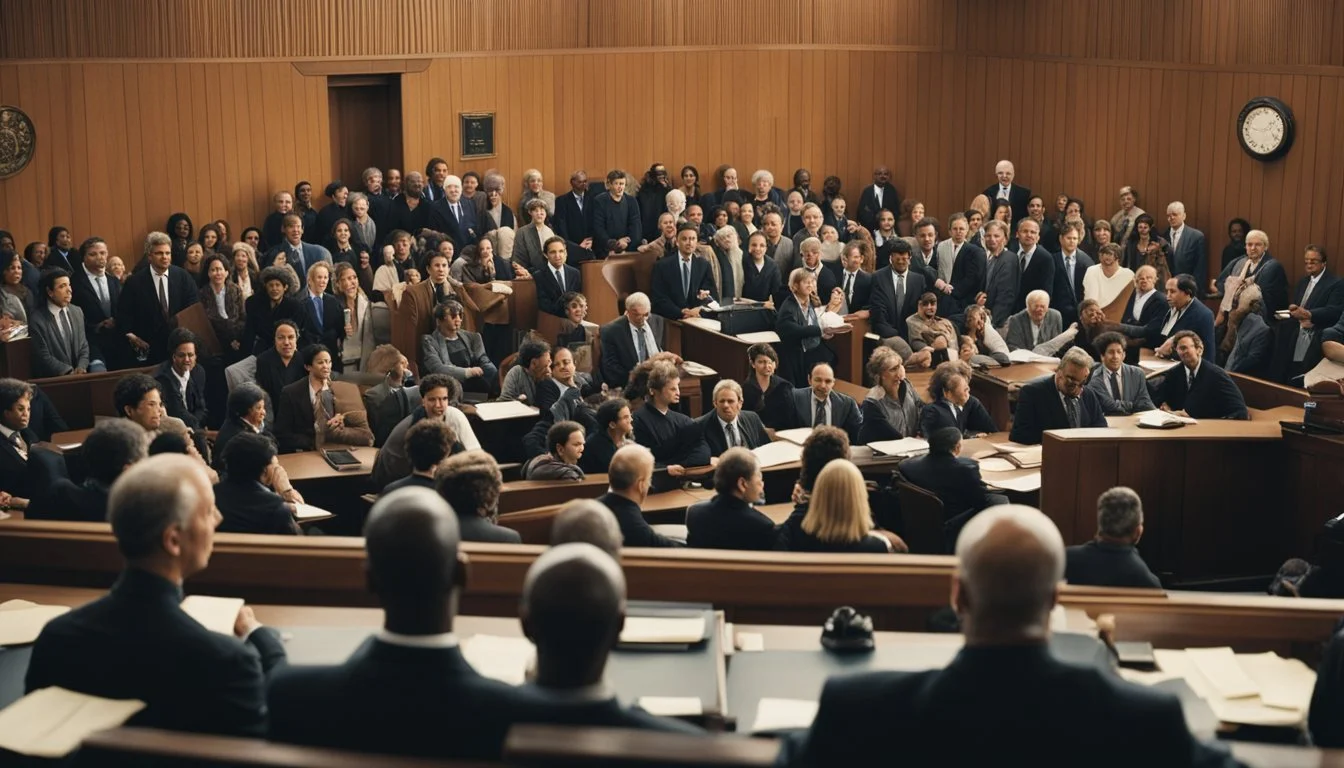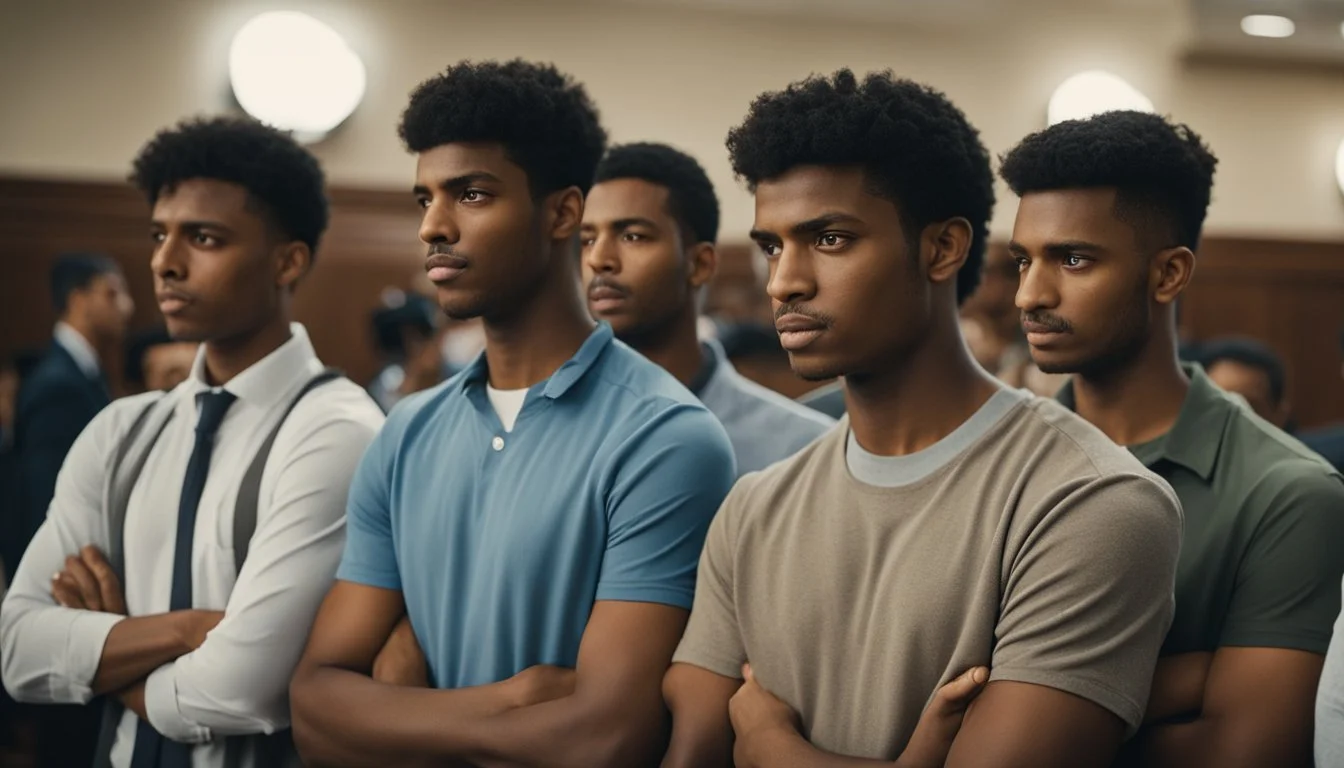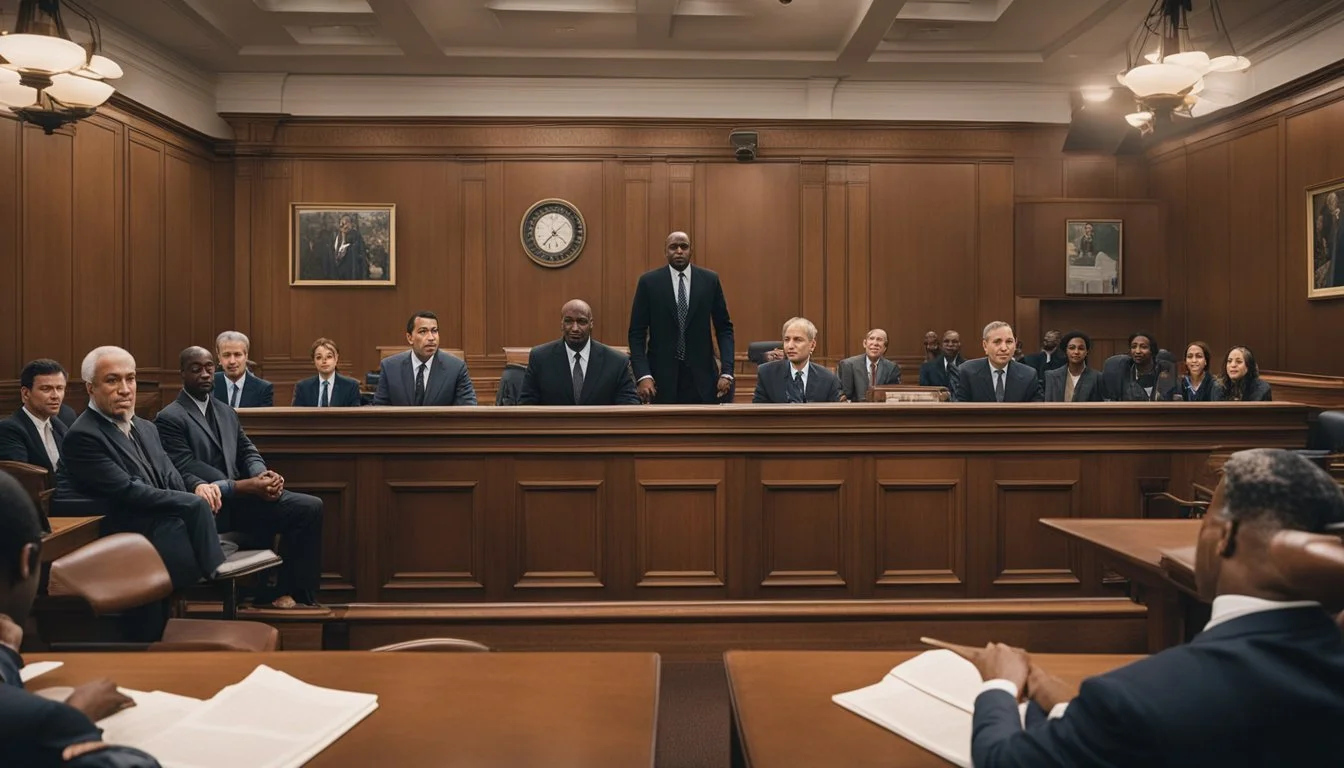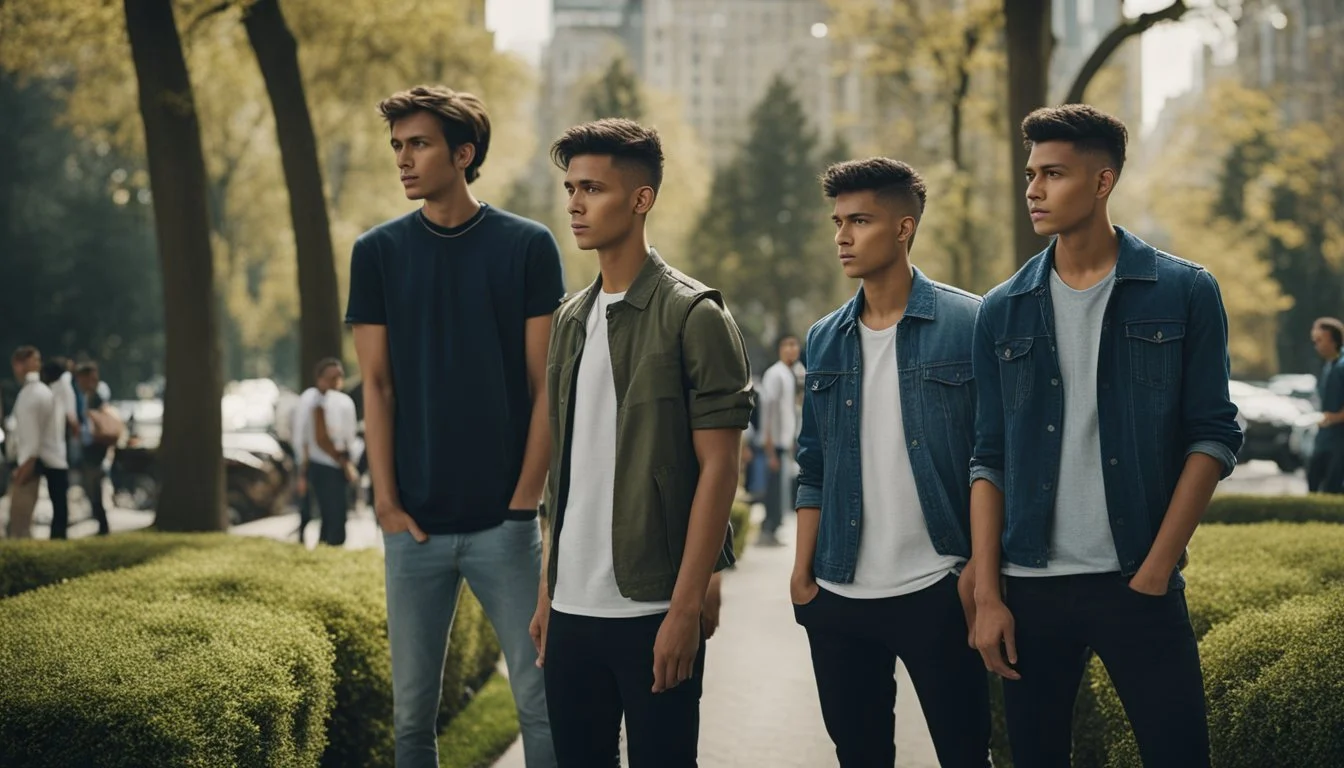Unraveling Injustice: Documentaries Expose the Central Park Five Tragedy
The Central Park Five case of 1989 stands as a pivotal moment in American criminal justice history. This miscarriage of justice, involving five young men wrongly convicted of a brutal attack in New York City's Central Park, has been the subject of numerous documentaries over the years.
These documentaries aim to shed light on the complex issues surrounding the case, including racial bias, police misconduct, and media influence. By examining the events through various lenses, filmmakers have sought to educate audiences about the far-reaching implications of this case and its impact on the lives of the accused, their families, and society at large.
1) The Central Park Five (2012)
"The Central Park Five" is a documentary film directed by Ken Burns, Sarah Burns, and David McMahon. It examines the notorious 1989 Central Park jogger case.
The film focuses on the five Black and Latino teenagers who were wrongfully convicted of assaulting and raping a white woman in Central Park. It explores their arrests, interrogations, trials, and eventual exoneration.
Through interviews with the five men and archival footage, the documentary reveals the flaws in the justice system that led to their convictions. It highlights issues of racial bias and coerced confessions.
The film also covers the media frenzy surrounding the case and its impact on public perception. It shows how the rush to judgment affected the lives of the accused and their families.
"The Central Park Five" received critical acclaim for its thorough examination of the case and its broader societal implications. It shed new light on a miscarriage of justice that had far-reaching consequences.
2) When They See Us (2019)
When They See Us is a powerful four-part Netflix miniseries directed by Ava DuVernay. It dramatizes the true story of the Central Park Five case from 1989.
The series follows the lives of five young men - Antron McCray, Kevin Richardson, Yusef Salaam, Raymond Santana, and Korey Wise - who were wrongfully convicted of attacking a jogger in Central Park.
DuVernay's work explores the impact of systemic racism on the justice system and the lives of the accused. It portrays the interrogations, trials, and aftermath of the case with gripping detail.
When They See Us features stellar performances from a talented ensemble cast. Jharrel Jerome won an Emmy for his portrayal of Korey Wise.
The miniseries received critical acclaim for its unflinching look at injustice and its emotional resonance. It sparked renewed public interest in the case and discussions about wrongful convictions.
More information on When They See Us
3) The Innocence Files (2020)
The Innocence Files is a true crime documentary miniseries released on Netflix in 2020. It explores cases of wrongful convictions and the work of the Innocence Project to exonerate innocent individuals.
While not specifically about the Central Park Five case, the series highlights similar issues of flawed evidence and systemic injustice. It examines how factors like faulty forensics and unreliable eyewitness testimony can lead to false convictions.
The nine-episode series is divided into three parts: The Evidence, The Witness, and The Prosecution. Each segment delves into different aspects of wrongful convictions through several case studies.
The Innocence Files provides insight into the investigative processes used to overturn unjust verdicts. It showcases the emotional toll on exonerees and their families, as well as the challenges they face after release.
By shedding light on these miscarriages of justice, the series aims to raise awareness about flaws in the criminal justice system. It complements other documentaries on wrongful convictions, including those focused on the Central Park Five case.
More information on The Innocence Files
4) Time: The Kalief Browder Story (2017)
Time: The Kalief Browder Story is a six-episode documentary series that premiered on Spike in 2017. The series chronicles the life of Kalief Browder, a Bronx teenager who spent three years in jail without being convicted of a crime.
Browder was arrested at age 16 for allegedly stealing a backpack. He was held at Rikers Island for three years, including two years in solitary confinement, while awaiting trial. The case was eventually dismissed.
The documentary explores the failures of the criminal justice system and the lasting impact of Browder's incarceration on his mental health. It features interviews with Browder, his family members, and legal experts.
Jay-Z served as an executive producer on the project. The series received critical acclaim for its powerful storytelling and examination of systemic issues in the American justice system.
While not directly about the Central Park Five case, Time: The Kalief Browder Story highlights similar themes of racial injustice and wrongful imprisonment affecting young Black men in New York City.
5) Who Killed Malcolm X? (2020)
Who Killed Malcolm X? is a 2020 documentary miniseries that examines the assassination of civil rights leader Malcolm X. Directed by Rachel Dretzin and Phil Bertelsen, the series consists of six episodes.
The documentary follows historian Abdur-Rahman Muhammad as he investigates the circumstances surrounding Malcolm X's murder. Muhammad has spent over 30 years researching the case and uncovering new evidence.
The series explores the possibility that the wrong men were convicted for the assassination. It raises questions about the involvement of the New York Police Department and the FBI in the events leading up to Malcolm X's death.
Who Killed Malcolm X? features interviews with eyewitnesses, historians, and family members of those involved. It also includes archival footage and documents related to the case.
The documentary's release led to renewed interest in the case. In 2021, two of the men convicted for Malcolm X's murder were exonerated based on new evidence uncovered during the filming of the series.
6) Strong Island (2017)
Strong Island is a deeply personal documentary directed by Yance Ford. The film explores the 1992 murder of Ford's brother, William Ford Jr., a 24-year-old Black man from Long Island, New York.
Ford examines the circumstances surrounding his brother's death and the subsequent failure of the justice system to hold anyone accountable. The documentary delves into themes of racial injustice, grief, and the impact of systemic racism on Black families.
Through intimate interviews with family members and archival footage, Strong Island paints a poignant portrait of William Ford Jr. and the lasting effects of his death on his loved ones. The film challenges viewers to confront uncomfortable truths about race and justice in America.
Strong Island received critical acclaim for its raw emotional power and innovative storytelling techniques. It was nominated for an Academy Award for Best Documentary Feature in 2018, marking Ford as the first openly transgender director to receive such recognition.
More information on Strong Island (2017)
7) 13th (2016)
Ava DuVernay's documentary "13th" explores the intersection of race, justice, and mass incarceration in the United States. While not exclusively focused on the Central Park Five case, it features this incident as a significant example of racial injustice.
The film examines how the Central Park Five were wrongfully convicted and imprisoned. It highlights the role of media sensationalism and political rhetoric in shaping public opinion about the case.
"13th" places the Central Park Five within a broader historical context of racial discrimination in the American criminal justice system. The documentary draws connections between slavery, Jim Crow laws, and modern-day mass incarceration.
DuVernay interviews key figures involved in the Central Park Five case. These interviews provide insight into the lasting impact of the wrongful convictions on the five men and their families.
The film also addresses Donald Trump's involvement in the case, including his 1989 newspaper ads calling for the death penalty for the accused teenagers.
More information about "13th" (IMDB)
8) OJ: Made in America (2016)
"OJ: Made in America" is a critically acclaimed documentary directed by Ezra Edelman. The film explores the life and legacy of O.J. Simpson, focusing on his rise to fame, fall from grace, and infamous murder trial.
Produced by ESPN Films as part of their 30 for 30 series, the documentary spans five parts. It delves into Simpson's football career, celebrity status, and the racial tensions surrounding his trial.
The film premiered at the Sundance Film Festival in January 2016. It received a limited theatrical release in New York and Los Angeles in May of the same year.
"OJ: Made in America" examines the broader societal context of Simpson's story. It touches on issues of race, police brutality, and media sensationalism in America.
The documentary garnered numerous accolades, including the Academy Award for Best Documentary Feature. Critics praised its comprehensive approach and insightful analysis of Simpson's complex narrative.
9) The Trials of Darryl Hunt (2006)
This documentary chronicles the case of Darryl Hunt, who was wrongfully convicted of rape and murder in 1984. Hunt spent nearly 20 years in prison for a crime he did not commit.
The film follows Hunt's legal journey from his initial conviction through multiple appeals and retrials. It highlights the flaws in the justice system that led to his wrongful imprisonment.
Directors Ricki Stern and Anne Sundberg use exclusive footage spanning two decades to tell Hunt's story. The documentary explores issues of racial bias and prosecutorial misconduct in the American legal system.
Hunt's eventual exoneration in 2004 came after DNA evidence identified the true perpetrator. The film showcases the perseverance of Hunt and his supporters in their fight for justice.
"The Trials of Darryl Hunt" serves as a powerful examination of wrongful convictions and the human cost of systemic failures in criminal justice.
10) The Central Park Five: The Untold Story (2023)
"The Central Park Five: The Untold Story" is a 2023 documentary that revisits the infamous 1989 Central Park jogger case. It presents new perspectives and previously undisclosed information about the wrongful convictions of five teenagers.
The film examines the societal and systemic factors that contributed to the miscarriage of justice. It includes interviews with legal experts, journalists, and activists who have studied the case extensively.
Archival footage and court records are used to reconstruct the events surrounding the arrests, trials, and eventual exonerations of the five men. The documentary also explores the lasting impact of the case on criminal justice reform.
"The Central Park Five: The Untold Story" provides a comprehensive look at how race and media coverage influenced public perception and the legal proceedings. It offers valuable insights into the complexities of the American justice system.
More information on the Central Park jogger case
Background of the Central Park Five Case
The Central Park Five case centered on the brutal assault of a jogger in New York City's Central Park in 1989. Five Black and Latino teenagers were wrongfully convicted and later exonerated for the crime.
Initial Incident
On April 19, 1989, a 28-year-old white woman was attacked while jogging in Central Park. She was raped, beaten, and left for dead. The assault occurred during a time of high crime rates in New York City, sparking intense media coverage and public outrage.
The victim was found unconscious with severe injuries and had no memory of the attack. Police quickly focused their investigation on a group of teenagers who had been in the park that night.
The Accused and Their Profiles
Five teenagers were arrested and charged with the attack:
Antron McCray, 15
Kevin Richardson, 14
Yusef Salaam, 15
Raymond Santana, 14
Korey Wise, 16
All were from Harlem and had been in Central Park on the night of the incident. The teens came from working-class families and had no prior serious criminal records.
During intense police interrogations, four of the five confessed to involvement in the attack. However, they later recanted, claiming their confessions were coerced through intimidation and deception.
Impact of Media on the Case
Media coverage played a significant role in shaping public perception and influencing the legal proceedings of the Central Park Five case. News outlets and their reporting practices had far-reaching consequences for the accused teens and the investigation.
Public Perception
The media's portrayal of the Central Park Five case heavily influenced public opinion. Initial reports painted a vivid picture of "wilding" teens terrorizing Central Park. This framing tapped into existing racial tensions and fears in New York City.
Sensationalized headlines and dramatic language fueled a climate of fear and outrage. Many news stories assumed the guilt of the accused before the trial began. This prejudiced coverage made it difficult for the public to consider alternative explanations or question the prosecution's case.
The documentary "The Central Park Five" by Ken Burns examines how media narratives shaped public understanding of the events. It highlights the long-lasting impact of these initial portrayals on the lives of the wrongfully convicted teens.
Role of News Outlets
News outlets played a crucial part in disseminating information about the Central Park jogger case. Major newspapers and TV stations provided extensive coverage, often relying on police sources for details.
Some media organizations published the names and photos of the underage suspects, despite ethical concerns. This exposure had lasting consequences for the accused teens and their families.
The competitive nature of New York's media landscape led to a rush for sensational stories. This urgency sometimes came at the expense of fact-checking and balanced reporting. As a result, inaccurate information and unsubstantiated claims spread widely.
Documentaries like "Central Park Five" and "When They See Us" have since critiqued the media's role in perpetuating false narratives. These works highlight the need for responsible journalism in high-profile criminal cases.
Legal Proceedings and Controversies
The Central Park Five case involved a series of legal proceedings spanning over two decades. These included the initial trials, subsequent convictions, eventual exonerations, and a civil lawsuit against New York City.
Trials and Convictions
In 1990, the Central Park Five were tried in two separate trials. The prosecution relied heavily on confessions obtained from the teenagers during interrogations. Despite the lack of physical evidence linking them to the crime, all five were found guilty.
Antron McCray, Kevin Richardson, and Raymond Santana were convicted in the first trial. Yusef Salaam and Korey Wise were convicted in the second trial.
The young men received sentences ranging from 5 to 15 years. Wise, tried as an adult, received the longest sentence of 5 to 15 years.
Reversal of Convictions
In 2002, Matias Reyes, a convicted murderer and serial rapist, confessed to the Central Park jogger attack. DNA evidence confirmed his involvement.
This confession led to a reinvestigation of the case by the Manhattan District Attorney's office. They found that the DNA evidence matched Reyes and did not match any of the Five.
On December 19, 2002, the convictions of the Central Park Five were vacated by New York State Supreme Court Justice Charles J. Tejada. The men were exonerated after spending between 6 and 13 years in prison.
Civil Suit and Settlements
Following their exoneration, the Central Park Five filed a civil rights lawsuit against New York City in 2003. They sought $250 million in damages for malicious prosecution, racial discrimination, and emotional distress.
The case remained unresolved for over a decade due to legal disputes and the city's initial reluctance to settle. In 2014, newly elected Mayor Bill de Blasio agreed to settle the lawsuit.
The city agreed to pay a total of $41 million to the five men, equating to roughly $1 million for each year of imprisonment. This settlement marked a significant acknowledgment of the injustice suffered by the Central Park Five.

